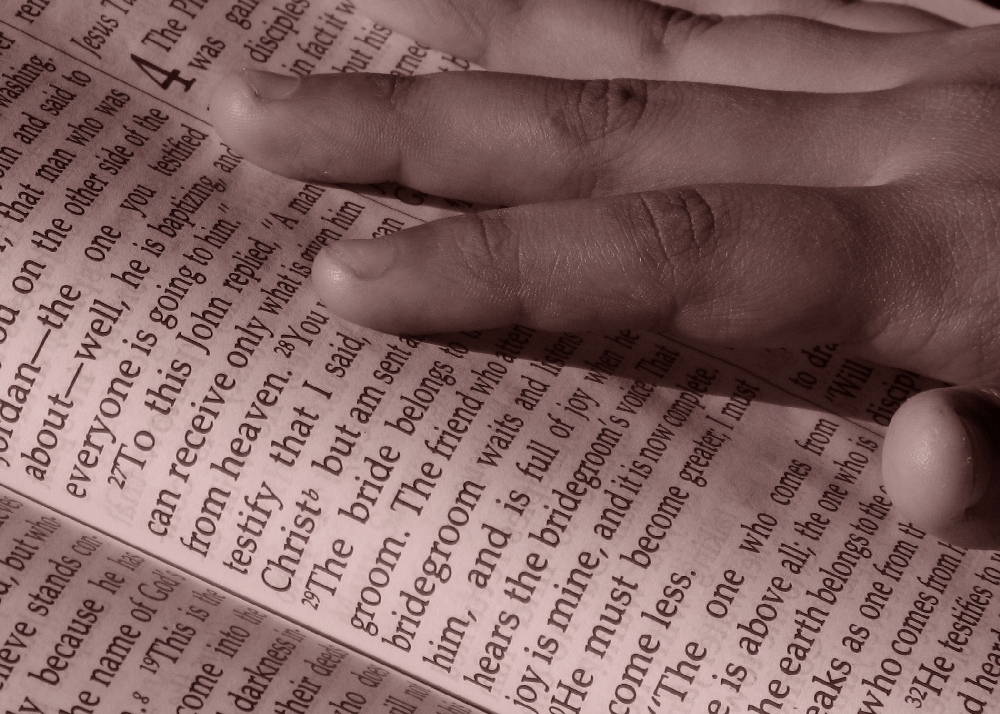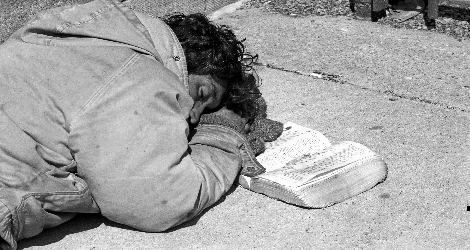 View and print as PDF
View and print as PDF
 What is spirituality? And what is a “practice” in this setting? What does the Bible have to say about any of this?
What is spirituality? And what is a “practice” in this setting? What does the Bible have to say about any of this?
These sound like theoretical, abstract questions about spirituality, but Joyce Hollyday, a long-time member of the Sojourners community in Washington, D.C., reminds us that the answers have very real, concrete outcomes for our life together. She writes,
More and more as I travel and listen, I hear materially comfortable Americans articulating a deep longing for spiritual roots and rhythms, for rituals that will infuse their lives with new meaning and bring them closer to God. At the same time, I hear the desperate pleas of those who cry to us from the streets and the soup kitchens, from the shacks and the shelters, for compassion and justice. These are not unrelated pleadings. They are in fact two sides of the same problem—and of the same hope. At heart, the crisis that divides our nation is a spiritual one. And only spiritual transformation will make us whole again.(1)
There is a lot of talk currently about spiritual practice. William Willimon and Stanley Hauerwas have written two recent books, Resident Aliens and Where Resident Aliens Live: Exercises for Christian Practice, in which they talk about Christianity as a set of practices that help us act out Christian discipleship. They are trying to distinguish between Christianity as something we do rather than as something we believe or experience. Willimon, however, is having second thoughts. The language of practice can be too general and applicable to all religious experience.
___________________________________________
“More and more, I hear Americans articulating a deep longing for spiritual roots and rhythms, for rituals that will infuse their lives with new meaning and bring them closer to God.”
– Joyce Hollyday
___________________________________________
As an alternative, Willimon points to Søren Kierkegaard (Practice of Christianity, 1850) who also emphasizes that Christianity is more than the intellectual acceptance of a particular set of beliefs.(2) Kierkegaard calls on Christians to obey Jesus more than to understand a philosophical system of beliefs based on Jesus’ teaching.(3) Willimon sums up Kierkegaard’s definition of discipleship as “practices… one must live [out] if one is convinced that Jesus Christ is the full revelation of God.”(4)
His conclusion: “The question to ask… is, ‘who is the God being served through this practice?’.”(5)
Our mission to be faithful Christians, therefore, is shaped by our understanding of the God we serve. The writers of Deuteronomy end their historical review of the Hebrew people with a wonderful picture of who God is and what God wants from us.
So now, O Israel, what does God require of you? Only to fear the Lord your God, to walk in God’s ways, to love God, to serve your God with all your heart and with all your soul, and to keep the commandments. For the Lord your God is God of gods, and Lord of lords, the great God, mighty and awesome, who is not partial and takes no bribe, who executes justice for the orphans and the widow, and who loves the strangers, providing them food and clothing. You shall also love the stranger, for you were strangers in the land of Egypt. (Deut. 10:12?22)
What God does, God also requires of us:
- Show truthfulness and honesty.
- Execute justice for the poor and those at the margins of society.
- Practice hospitality for strangers.
- Provide basic needs such as food and clothing.
There is a lot to say that follows from this picture of God we get in scripture, but I wish to focus on the category of justice.
___________________________________________
Simply put, doing justice is knowing God.
___________________________________________
First, let me distinguish between two closely related biblical terms, justice and righteousness. They are very similar in meaning, and are at times interchangeable. Righteousness is the fulfillment of the requirements of a relationship, whether with other people or with God. Righteousness, as right relationships, preserves or restores community and makes communal life possible. I use the term justice in a more institutional setting, to define the institutional structures and patterns of power that shape our lives externally. Biblically, there is no hard and fast distinction between the two concepts, but I want to make clear how I use them. The description of the characteristics of God above (Deut. 10) encompasses both concepts as a part of the nature of God.
Continue reading on next page…






Unbound Social